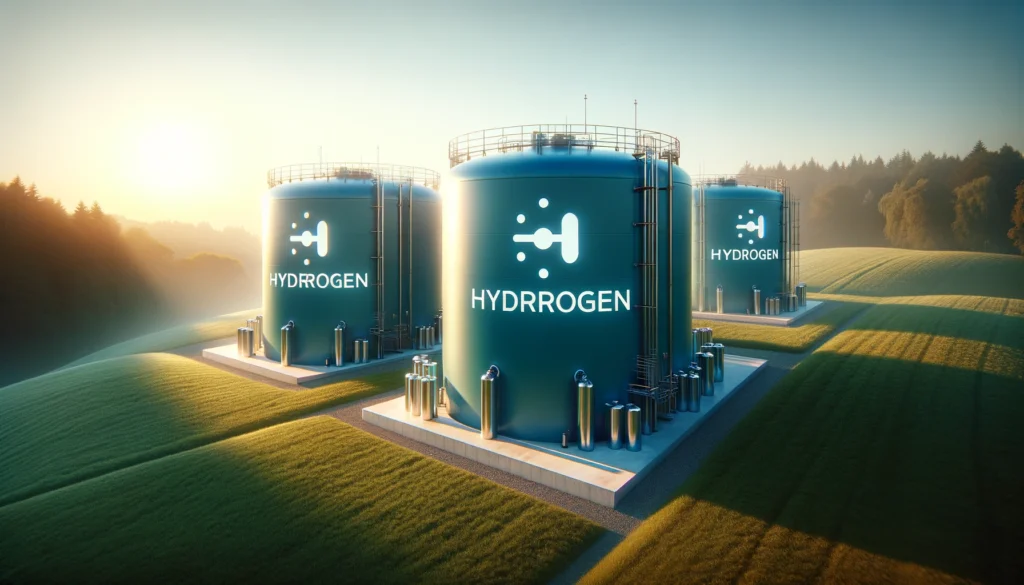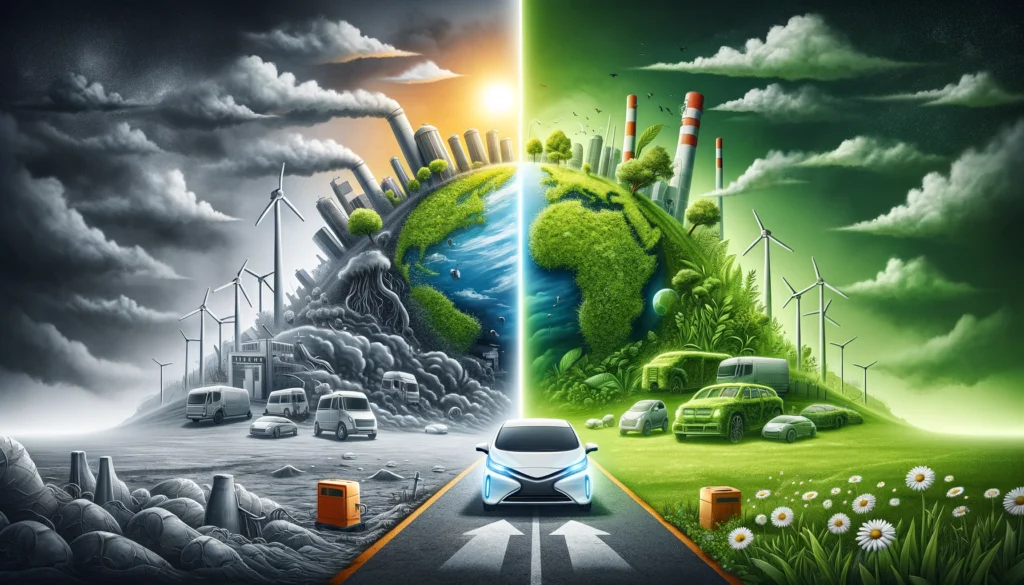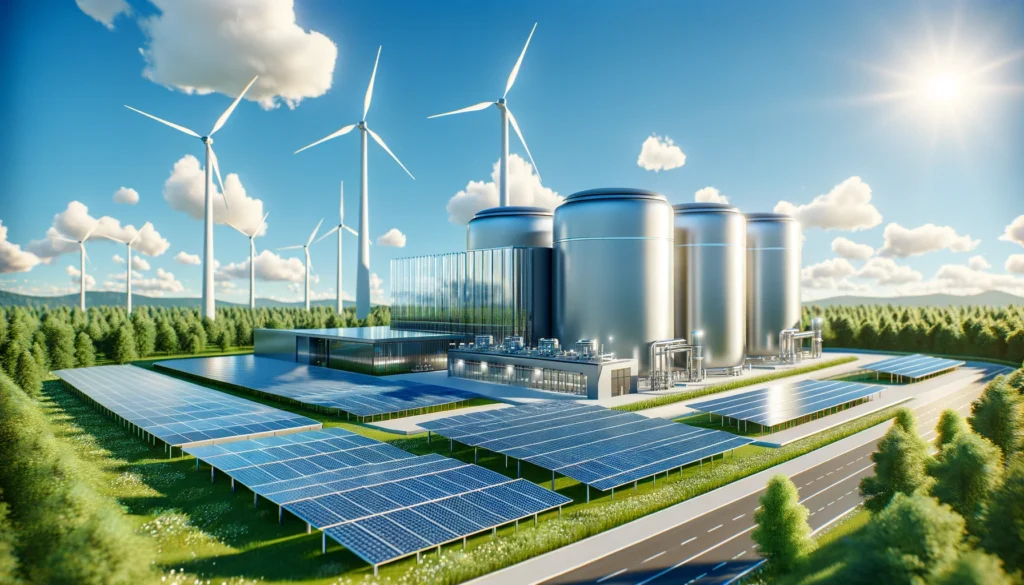In the quest for sustainable energy solutions, hydrogen fuel cells are emerging as a promising contender. With the urgent need to combat climate change and reduce dependence on fossil fuels, the spotlight is increasingly turning towards alternative energy sources. Hydrogen fuel cells offer a clean, efficient, and versatile option that holds immense potential to revolutionize various sectors.
Table of Contents

Understanding Hydrogen Fuel Cells
Hydrogen fuel cells are electrochemical devices that convert the chemical energy of hydrogen and oxygen directly into electricity, with water and heat as the only byproducts. Unlike traditional combustion engines, fuel cells operate without combustion, resulting in zero emissions of greenhouse gases and pollutants. This makes them a highly attractive option for achieving sustainable energy goals and combating climate change.
Working Principle
The operation of a hydrogen fuel cell is relatively straightforward. It consists of an anode, a cathode, and an electrolyte membrane sandwiched between them. At the anode, hydrogen molecules are split into protons and electrons. The protons pass through the electrolyte to the cathode, while the electrons travel through an external circuit, generating electrical current. At the cathode, oxygen from the air combines with the protons and electrons to form water, releasing heat in the process.
Versatility and Applications
One of the key advantages of hydrogen fuel cells is their versatility. They can be scaled up or down to meet various energy demands, from powering small electronic devices to providing electricity for vehicles, buildings, and even entire cities. Fuel cell vehicles (FCVs) are gaining traction as an alternative to conventional gasoline and diesel vehicles, offering zero-emission transportation with fast refueling times and longer driving ranges.
In addition to transportation, hydrogen fuel cells have applications in stationary power generation, providing backup power for critical infrastructure, residential and commercial electricity generation, and grid stabilization. They can also be integrated with renewable energy sources such as wind and solar to store excess energy and facilitate a more reliable and resilient energy system.

Advantages of Hydrogen Fuel Cells
- Zero Emissions: Hydrogen fuel cells produce only water and heat as byproducts, resulting in minimal environmental impact and contributing to cleaner air and reduced greenhouse gas emissions.
- High Efficiency: Fuel cells have higher efficiency compared to traditional combustion engines, converting a greater portion of the energy in hydrogen fuel into usable electricity.
- Fast Refueling: Unlike battery-electric vehicles, which require hours to recharge, hydrogen fuel cell vehicles can be refueled in a matter of minutes, offering convenience and eliminating range anxiety.
- Versatility: Fuel cells can be deployed across a wide range of applications, from transportation to stationary power generation, making them a versatile solution for diverse energy needs.
Challenges and Limitations
Despite their potential, hydrogen fuel cells face several challenges that need to be addressed for widespread adoption. These include the high cost of production, distribution, and storage of hydrogen, as well as the need for infrastructure development, including hydrogen refueling stations. Additionally, the current reliance on fossil fuels for hydrogen production raises concerns about sustainability and carbon emissions.
Future Outlook
Despite the challenges, the future looks promising for hydrogen fuel cells. Technological advancements, coupled with growing investments and government initiatives to support clean energy, are driving innovation and reducing costs. As the world transitions towards a low-carbon economy, hydrogen fuel cells are poised to play a pivotal role in providing clean, reliable, and sustainable energy solutions.

Conclusion
Hydrogen fuel cells represent a significant breakthrough in the pursuit of green energy. With their zero-emission operation, high efficiency, and versatility, fuel cells offer a promising alternative to traditional fossil fuels. As we work towards mitigating climate change and building a more sustainable future, hydrogen fuel cells are poised to emerge as a key player in the global energy landscape, powering transportation, industry, and everyday life with clean and renewable energy.
FAQs
What is a hydrogen fuel cell?
A hydrogen fuel cell is an electrochemical device that converts the chemical energy of hydrogen and oxygen directly into electricity, with water and heat as the only byproducts.
How do hydrogen fuel cells work?
Hydrogen fuel cells operate by splitting hydrogen molecules at the anode into protons and electrons. The protons pass through an electrolyte to the cathode, while the electrons travel through an external circuit, generating electrical current. At the cathode, oxygen combines with the protons and electrons to form water, releasing heat in the process.
What are the advantages of hydrogen fuel cells?
Hydrogen fuel cells offer zero emissions, high efficiency, fast refueling times, and versatility in applications, making them a promising solution for clean and sustainable energy.
What are the challenges facing hydrogen fuel cells?
Challenges include high production, distribution, and storage costs of hydrogen, as well as the need for infrastructure development and sustainability concerns regarding hydrogen production methods.
What is the future outlook for hydrogen fuel cells?
Despite challenges, technological advancements and increasing investments in clean energy are driving innovation and reducing costs, positioning hydrogen fuel cells as a key player in the transition to a low-carbon economy.
You May Also Like
- COMPARING HYDROGEN FUEL CELLS TO TRADITIONAL DIESEL ENGINES FOR HEAVY-DUTY VEHICLES
- FLOATING HYDROGEN FARM: CHINA’S MILESTONE IN SHIFTING TOWARDS RENEWABLE ENERGY
- HOW POSSIBLE IS TO CREATE A PLANE FUELED BY HYDROGEN?
- THE TECHNICAL CHALLENGES OF IMPLEMENTING HYDROGEN-POWERED FLIGHT
- MAKING THE SHIFT: HOW HYDROGEN INFRASTRUCTURE SUPPORTS THE ADOPTION OF HYDROGEN VEHICLES
